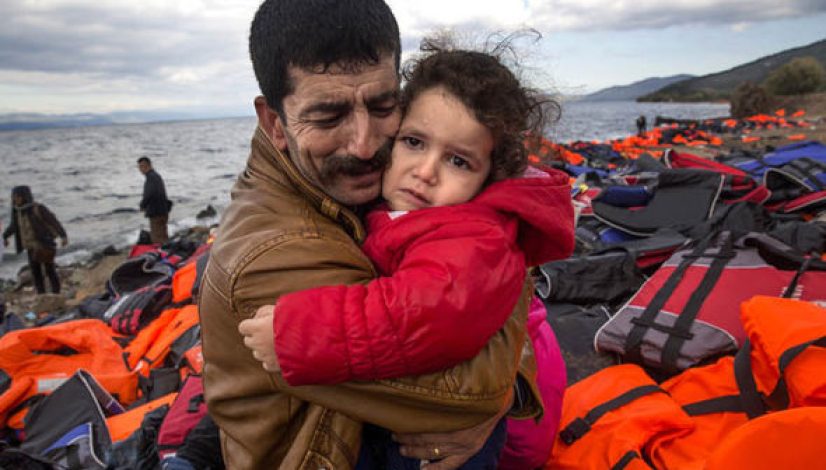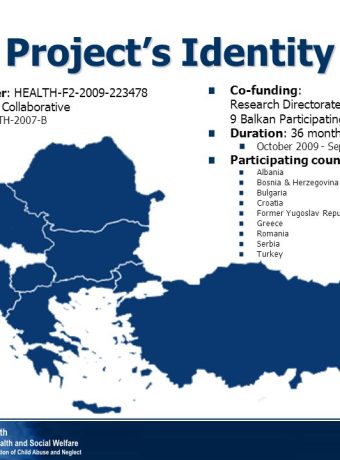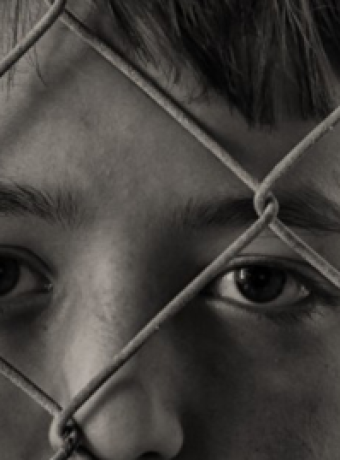SESN – Southeast Safe Net
Started on Oct 2013 and was completed on Oct 2013
Preventing child trafficking and protecting unaccompanied minors in Greek-Turkish Borders – SESN
This project has been funded with support from the European Commission (ISEC Programme/ISF). This communication reflects the views only of the authors, and the European Commisioncannot be held responsible for any use which may be made of the information contained therein
The main objectives of this project are to contribute in combating trafficking of minors by promoting & developing: i) coordination & cooperation among law enforcement, other state & private national authorities, and civil society, and ii) best practices for the protection of trafficked and/or unaccompanied minors entering illegally the Greek borders (i.e. trainings of frontline professionals, development of database, development of a tool for the identification of minor victims of trafficking, intervention with unaccompanied minors).
Target groups:
Trafficked and/or at risk of trafficking unaccompanied minors crossing illegally the Greek-Turkish borders including unaccompanied minors hosted in shelters/detention centres
Frontline professionals – Personnel of state & private agencies involved in combating child trafficking
Officials from key-agencies/authorities in protecting unaccompanied minors and combating child trafficking
Personnel of reception facilities hosting unaccompanied minors
General public/civil society
This project’s activities include:
1. Kick off managerial meeting
2. Networking activities:
i. Development of Greek network through in-person meetings, electronic and phone communication, and while implementing the training activities
ii. Development of Turkish network through in-person meetings, electronic and phone communication and while implementing the training activities
iii. Two coordination and cooperation meetings for Greek and Turkish Networks, one in Greece, that took place in Athens on 1.07.2014, and one in Turkey, that took place in Izmir on 24-26.08.2015
3. Development of tools that facilitate the identification of cases of child trafficking and identify best practices for the protection of unaccompanied minors:
i. Review of European best practices for the identification of minor victims of trafficking, in order to create the basis for the development of a tool for the identification of victims of trafficking in the Greek-Turkish borders.
ii. Screening Tool for the identification of minor victims of trafficking in Greek, and translated in Turkish.
iii. Handbook for the use of the tool for the identification of minor victims of trafficking that accompanies the aforementioned tool and provides all the necessary background knowledge and guidelines; in Greek and translated in Turkish.
iv. Database for registering unaccompanied minors and/or (possible) victims of trafficking entering illegally Greece through the Greek-Turkish borders.
v. Focus-groups with hospitality centres’ personnel for investigating what is done for the integration of children into society and what are possible follow-up strategies, in case the latter abscond.
4. Training activities:
i. Training of first-line professionals (law enforcement agencies, first reception centres and asylum service personnel, medical and paramedical professionals, social and health scientists working for NGOs or at public institutions) on the screening tool for the identification of minor victims of trafficking and on issues concerning unaccompanied minors and victims of trafficking in Greece.
ii. Training of first-line professionals (officials and professionals from regional Police Departments, Migration Management Directories, Coastguard, Emergency Medical Services, Family and Social Policy Directories and Public Health Directories) on the tool for the identification of minor victims of trafficking and on issues concerning unaccompanied minors and victims of trafficking in Turkey.
iii. Training of Athens Airport personnel, police officers responsible for passport controls and security companies’ personnel, who conduct body search and baggage control on the tool for the identification of minor victims of trafficking.
iv. Training on the database for the registration of unaccompanied minors and/or victims of trafficking in Greece at the First Reception Service’s personnel (Ministry of Interior and Administrative Reconstruction).
5. Intervention activities:
i. Workshop on children’s rights for unaccompanied minors residing in state and NGO hospitality centres in Greece.
ii. Implementation of empowerment and self-protection skills for unaccompanied minors
6. Evaluation of the overall implementation of the project’s activities by an external expert
7. Dissemination activities:
i. Development and publication of handbook of case studies of child trafficking and unaccompanied minors in Greece for professionals and trainees
ii. Leaflets for raising awareness on combating child trafficking, addressed to the general public, as well as to professional groups
iii. International Conference for the pertinent public authorities, NGOs, professionals and the general public for disseminating project’s activities and results and discussing ways to combat child trafficking and to apply more effectively children’s rights in Europe.
iv. Poster raising the awareness of unaccompanied minors regarding child trafficking
v. Development of a website with project’s activities, reports and laws relevant to unaccompanied minors and trafficking.
By the completion of this 29-month project the following results were achieved:
More effective cooperation & coordination among involved agencies in terms of combating & preventing child trafficking by better monitoring the unaccompanied minors entering illegally Greece from Turkish borders
Frontline professionals, more likely to encounter and identify victims of child trafficking, are better trained & equipped to do so
By creating a developmentally informed tool for the identification of minor victims of trafficking, a handbook with relevant topics (such as legal framework in relation to child trafficking and unaccompanied minors, interview guidelines and techniques, trauma and its manifestation in children) and by providing psychosocial support to unaccompanied minors residing in shelters, we have promoted in practice child-friendly identification procedures.
Systematic data collection and registration of unaccompanied minors and or potential victims of child trafficking through the development and delivery of the SESN database to the First Reception Service
The general public is better informed on child trafficking issues.
Responsible for the project “Southeast Safe Net: Preventing child trafficking and protecting unaccompanied minors in Greek-Turkish Borders” are:
George Nikolaidis, Psychiatrist, Ph.D., Head of Department for Mental Health and Social Welfare, Project Leader (CV)Kornilia Hatzinikolaou, Psychologist, Ph.D, Scientific Coordinator (CV)
SESN Publication (in Greek): Guide-Screening Tool for identification of minor victims of trafficking





